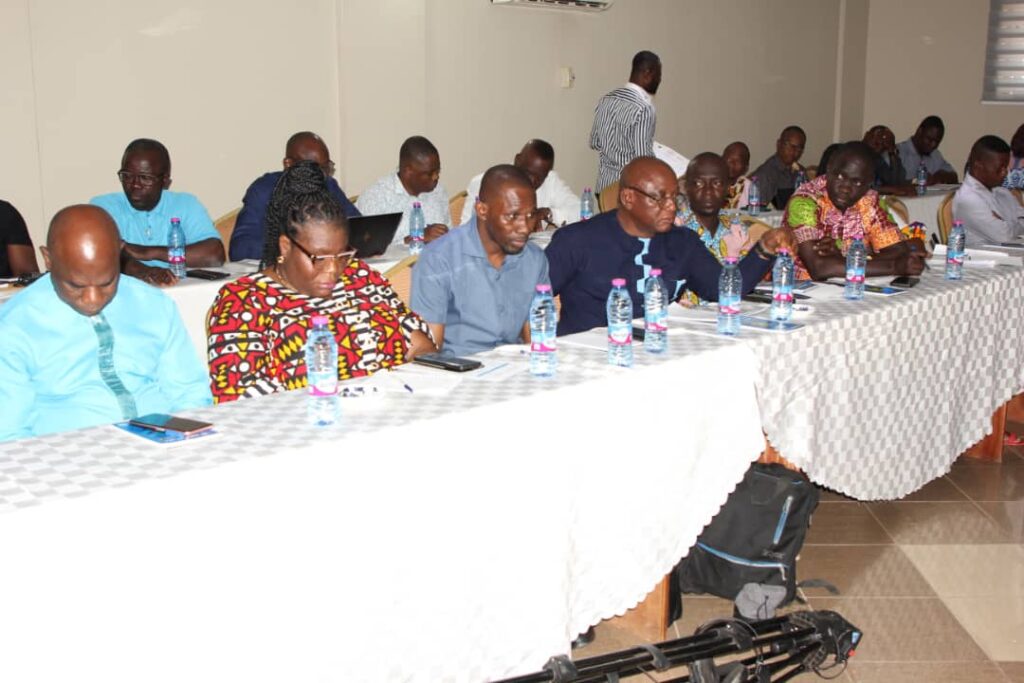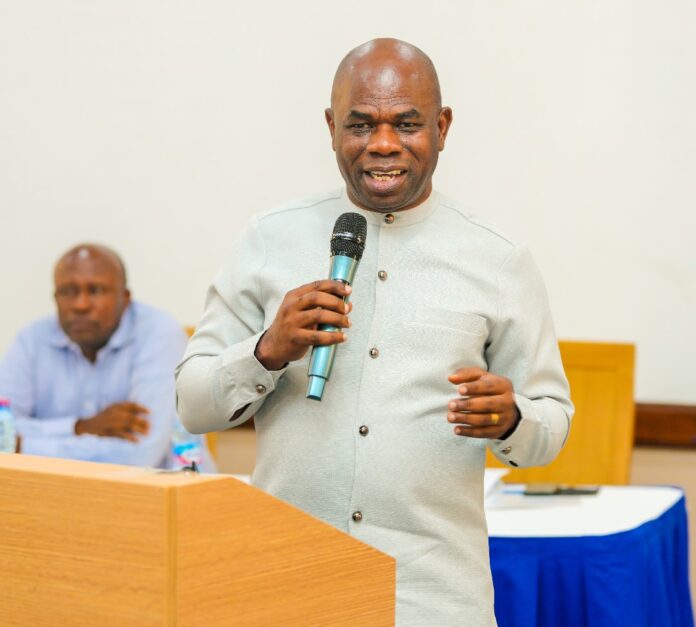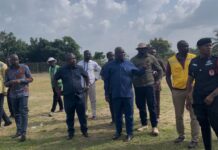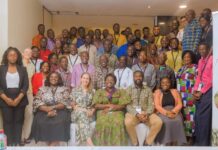Kumasi, Ghana – The Emergency Support to Rural Livelihoods & Food Systems Exposed to COVID-19 (ESRF) Project is nearing its conclusion, prompting the Ministry of Food and Agriculture to organize a Closure Conference.
This event showcased the impactful initiatives undertaken and brought together officials, stakeholders, and beneficiaries from across the country.
The project alleviated, among other things, the negative impacts of the COVID-19 pandemic on 54,349 vulnerable smallholder farmers and food systems, across 48,886 households.
Dr. Hayford Baah-Adade, the National Project Coordinator for ESRF, remarked, “The exit conference was a critical moment to reflect on our successes and related plans. It is essential that the progress we have achieved is safeguarded, and that local institutions take responsibility moving forward.”
The project comprised three core components: combating hunger, strengthening rural marketing connections and food security, and ensuring effective project management with an ArcGIS system for monitoring and evaluation.
Key infrastructure improvements were made to facilitate farmers’ access to markets, enhance agricultural productivity, and improve post-harvest management, reflecting a holistic strategy toward food security.

At the conference, participants were briefed on the project’s key accomplishments, highlighting significant interventions like water harvesting systems, boreholes for drinking water, poultry farming initiatives, and the distribution of vital supplies such as fertilizers and quality seeds.
Additionally, a functional ArcGIS Monitoring and Evaluation System was established to promote transparency and accountability.
While celebrating its successes, the conference also fostered discussions on sustainability, emphasizing strategies for maintaining and expanding these achievements.
Key stakeholder institutions were identified to oversee these efforts after the program ends, underlining the necessity of continuing, replication and scaling up of interventions for community benefit.
Panel discussions featured representatives from the District Department of Agriculture (DDA), Ghana Irrigation Development Authority, Department of Feeder Roads, the Food and Agriculture Organization (FAO), and the World Food Programme (WFP), each sharing insights from their collaboration with the ESRF Project.

Topics included the effects of digital marketing, agro-processing opportunities for women and youth, and the maintenance of critical agricultural infrastructure such as farm tracks and irrigation systems.
Attendees received a comprehensive report detailing all interventions and achievements, along with a video presentation that visually documented the project’s milestones and impacts.
The Closure Conference served as an essential platform for stakeholders to reaffirm their commitment to supporting rural livelihoods and food systems, ensuring that the progress made is both preserved and enhanced in the future.
As Ghana confronts the intertwined challenges of the pandemic and climate change, this collaborative approach stands to strengthen food security and resilience for its most vulnerable populations.








